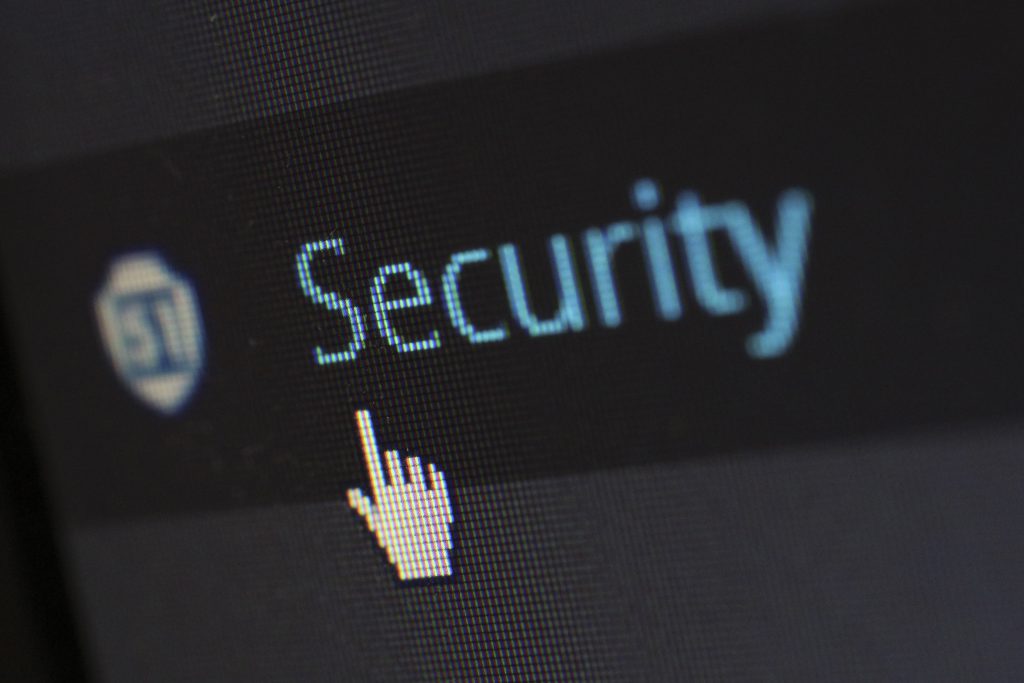Secure Text Messaging for Healthcare
Everyday, 23 billion text messages are sent out, making them one of the most common avenues of communication. In the healthcare industry, text messaging has revolutionized the way in which doctors can communicate with their patients and other colleagues. Not only is it faster and more convenient, but also the most common type of communication platform healthcare providers use.

A HIPAA compliant messaging service helps healthcare providers communicate effectively with patients, colleagues, and other providers, all while maintaining HIPAA compliance. Text messaging is not specifically mentioned in HIPAA regulations, but it has become a central point of contention nonetheless.
Text Messaging & HIPAA Compliance
The Health Insurance Portability & Accountability Act (HIPAA) regulates how patient data can be used and accessed. Since HIPAA was enacted in 1996, the world has taken a digitally dominant direction. People now rely primarily on emails, computers, and text messaging to communicate and function.
Healthcare providers soon switched to digital platforms as a means to carry out their business. This included text messaging to communicate with patients, colleagues, and other providers.
Sending texts is much faster than other methods of communication, like phone calls or emailing. If doctors send or receive PHI over text, they may violate HIPAA regulations because most text messaging platforms are not secure.
Text Messaging Platforms & PHI
Healthcare providers need to operate with caution when communicating over text with their patients and colleagues. In 2017- healthcare facilities paid, on average, $475,000 – $2.3 million in settlement fees for not securing their ePHI over text.
In accordance with HIPAA regulations, PHI needs to be stripped of all identifiable factors, such as name, initials, DOB, etc. It is virtually impossible to not include PHI within text messages that apply to a patient’s health or treatment. Sending a text that contains medical information to a patient’s phone number violates HIPAA, even if the information is anonymous. A personal phone number is an identifiable factor that can be linked to that patient.
HIPAA regulations operate based on three main rules: The Privacy Rule, The Security Rule, and The Breach Notification Rule. Text messaging in healthcare is centered primarily around two of these three rules, The Privacy Rule and the Security Rule.
Text Messaging & The Privacy Rule
The Privacy Rule was put in place to protect the confidentiality of a patient’s health information. It applies to all entities that might have access to this information and protects any “individually identifiable health information.” Under the HIPAA Privacy Rule, a Covered Entity (CE) and Business Associate (BA) are required to secure Protected Health Information (PHI).
- Ensure any health information disclosed is used for permissible purposes only, such as discussing treatment or informing family members.
- Implement reasonable safeguards to protect PHI, such as end-to-end data encryption or secure password authentication.
- Limit disclosing PHI to a minimum, only discussing what it is absolutely necessary.
- Verify a recipient’s identity before disclosing any PHI.
Text Messaging & The Security Rule
Another rule healthcare providers need to be concerned with regarding text messaging and HIPAA compliance is The Security Rule. Applying to both CE’s and BA’s, The Security Rule regulates safeguards to protect a patient’s health information. A CE and their accompanying BA’s need to implement the following security requirements to safeguard PHI.
- Conduct a “Risk Assessment” of ePHI. This not only ensures an organization is properly safeguarding confidential information, but also identifies areas where PHI could be at risk.
- Implement safeguards for access controls- such as a unique user I.D., an automatic logoff, or data encryption.
- Implement safeguards for data in transmission, such as integrity controls and data encryption.
How to Maintain HIPAA Compliance in Text Messaging
A CE can find themselves at a crossroad when trying to effectively navigate HIPAA compliant text messaging. On one hand, they need to comply with The Security Rule to safeguard PHI by any means necessary. On the other hand, however, The Privacy Rule requires that they provide patient’s copies of their health information.
Patient communication not only improves a provider’s relationship with their patients, but also establishes a strong clinical workflow in their practice. How can a CE balance both these necessities at the same time? The answer is a HIPAA compliant messaging service.
What is HIPAA Compliant Messaging?
Text messaging in the healthcare industry is not only a common practice, but preferred amongst providers and patients. Discussing a patient’s treatment options, condition, or payment plan is easy, convenient, and efficient for all parties involved. Just like all other forms of communication in the healthcare industry, PHI that is sent and received must be HIPAA compliant.
A HIPAA compliant messaging service is used by healthcare providers to communicate efficiently and accurately with patients and colleagues. Providers can live chat about patient care, treatment options, and payment plans on a mobile device, desktop, or tablet. This secure text messaging solution follows the regulations HIPAA requires to protect a patient’s medical information.
How Does HIPAA Compliant Messaging Work?
Text messages are an easy, convenient way to communicate with others. HIPAA compliant messaging services combine the convenience associated with text messaging and maintain the rigid safeguards implemented by HIPAA. As a result, healthcare providers and any other entity that has access to PHI can prioritize security and efficiency.
HIPAA compliant messaging operates on secured network servers and strips PHI of all identifiable factors. Thus, unauthorized personnel are prevented from gaining access to it.
Secured Network Servers
When you send a message, it travels across multiple servers before it is delivered to your desired recipient. A server is a piece of hardware that helps computers operate over a network. As this data bounces back and forth, a copy of it is stored on each server.
The servers that are used by non-HIPAA compliant chat services are not secure. If a hacker gains access to that server, copies of that valuable data become subject to a data breach.
A HIPAA compliant messaging service uses secured network servers to keep your data safe while it is in transit. At EnGuard, we backup our data to multiple secure locations to keep it out of reach of hackers.
Data Encryption

In addition to secured network servers, healthcare security services also offer end-to-end data encryption. This security method acts as an added layer of protection for patient health information. End-to-end data encryption is one of the most effective methods to use when combating hacking incidents.
Apart from laptop loss, improperly encrypted back-up data is one of the most common types of data breaches. End-to-end data encryption secures data throughout its entire journey from one server to another. Utilizing a complex mathematical code, data encryption makes PHI anonymous. Once data is encrypted, it cannot be decrypted without a key.
A decryption key can be used to view PHI after it has been encrypted. Only authorized personnel can use the decryption key. Decryption keys should never be shared with anyone and changed regularly as a best practice for data security.
HIPAA Compliant Messaging at EnGuard
Every year, the OCR conducts 3,000 audits. If you are not securing PHI, you could face hefty non-HIPAA compliance penalties during an audit.
At EnGuard, our services are specially curated to safely secure your PHI. You don’t have to sacrifice convenience for safety. With our secure communication service, healthcare organizations and providers can take advantage of text messaging convenience all while maintaining HIPAA compliance. If you are looking for the best healthcare security services available, contact our office today!
Text Messaging & HIPAA Compliance FAQs
Q. Are text messages HIPAA compliant?
Text messages are neither enclosed, encrypted, nor protected with passwords. As such, text messaging is not HIPAA compliant. When you send a text, it passes through multiple servers before it is delivered. A copy of that text is then stored on each server it passes through. These servers are not usually not secured. Therefore, sending text messages that contain PHI on a network server that is not secure puts you at high risk for a data breach. To ensure that you, as a healthcare provider or HIPAA covered entity, meet the security requirements outlined under HIPAA, use a HIPAA compliant messaging platform. These services encrypt your data and store copies on a private network server to ensure that your sensitive information is properly safeguarded.
Q. ePHI stands for…?
ePHI stands for Electronic Protected Health Information. Any virtual form of PHI is considered ePHI and as such, is protected under HIPAA laws. Emailing lab results, taking photos of a patient, and discussing medical information over text are all examples of ePHI. PHI is private medical information that contains individually identifiable factors. These characteristics are broad and make the healthcare data traceable to a specific patient. Examples of individually identifiable factors may include a patient’s full name, DOB< SSN, physical address, email, phone number, employment information, medical history, and much more. HIPAA covered entities are required to implement proper safeguards to protect this confidential data.
Q. What is a messaging platform?
A messaging platform is a method of communication that allows people to exchange electronic messages over the internet. It is an easy, convenient way to connect with others and exchange ideas. In a healthcare setting, providers can use messaging platforms to communicate with patients, discuss a case with another provider, or conduct business with office staff. However, under HIPAA laws, healthcare entities are required to maintain HIPAA compliance if they are sending or receiving PHI over text. Using a secure messaging platform is the most effective way to safeguard patient data.
Q. How to improve healthcare communication?
Effective communication in the healthcare industry can be tricky, especially with HIPAA compliance requirements. Virtual methods of communication, such as text messaging and video chat, have become a premiere modality in both a recreational and professional sense. Friends can use these features to keep in contact while professionals like physicians can also use them to communicate with patients and colleagues. However, if a physician is sending or receiving PHI on a virtual platform, they need to make sure they are maintain the integrity of that PHI. Secure messaging platforms allow doctors to safely and effectively communicate with their patients and colleagues. With that, the best way to improve healthcare communications is to use HIPAA compliant communication platforms. They allow you the luxury of modern communication modalities without compromising the integrity of confidential data.
Q. Are text appointment reminders HIPAA compliant?
Yes, text appointment reminders are HIPAA compliant. However, as a HIPAA covered entity, you need to implement proper safeguard to make sure a patient’s information is protected. HIPAA laws only apply to Covered Entities (CEs) and Business Associates (BAs). They are legally required to protect a patient’s healthcare data with reasonable and appropriate safeguards. Appointment reminders sent over text are a form of ePHI. Thus, it is protected under HIPAA regulations. Texting a patient prior to their appointment to remind them of their upcoming visit is a great way to prevent no shows. However, you must first obtain their consent. Then, you will need to have proper safeguards in place before communicating with the patient in any form to avoid a HIPAA non-compliance penalty.




